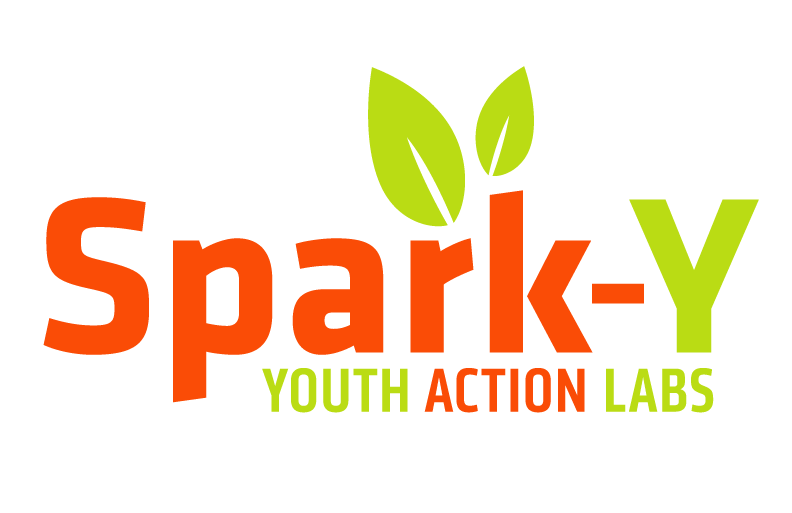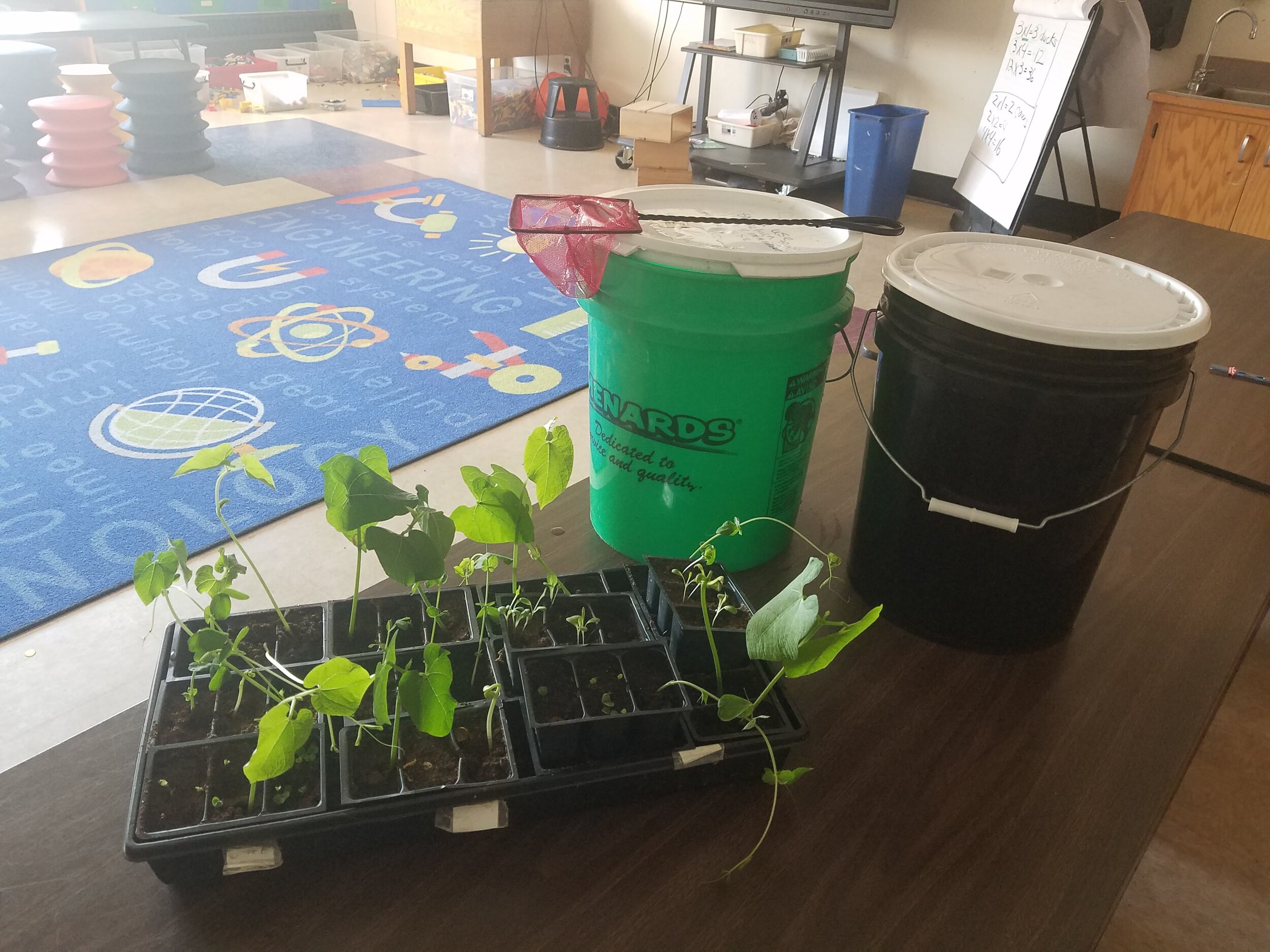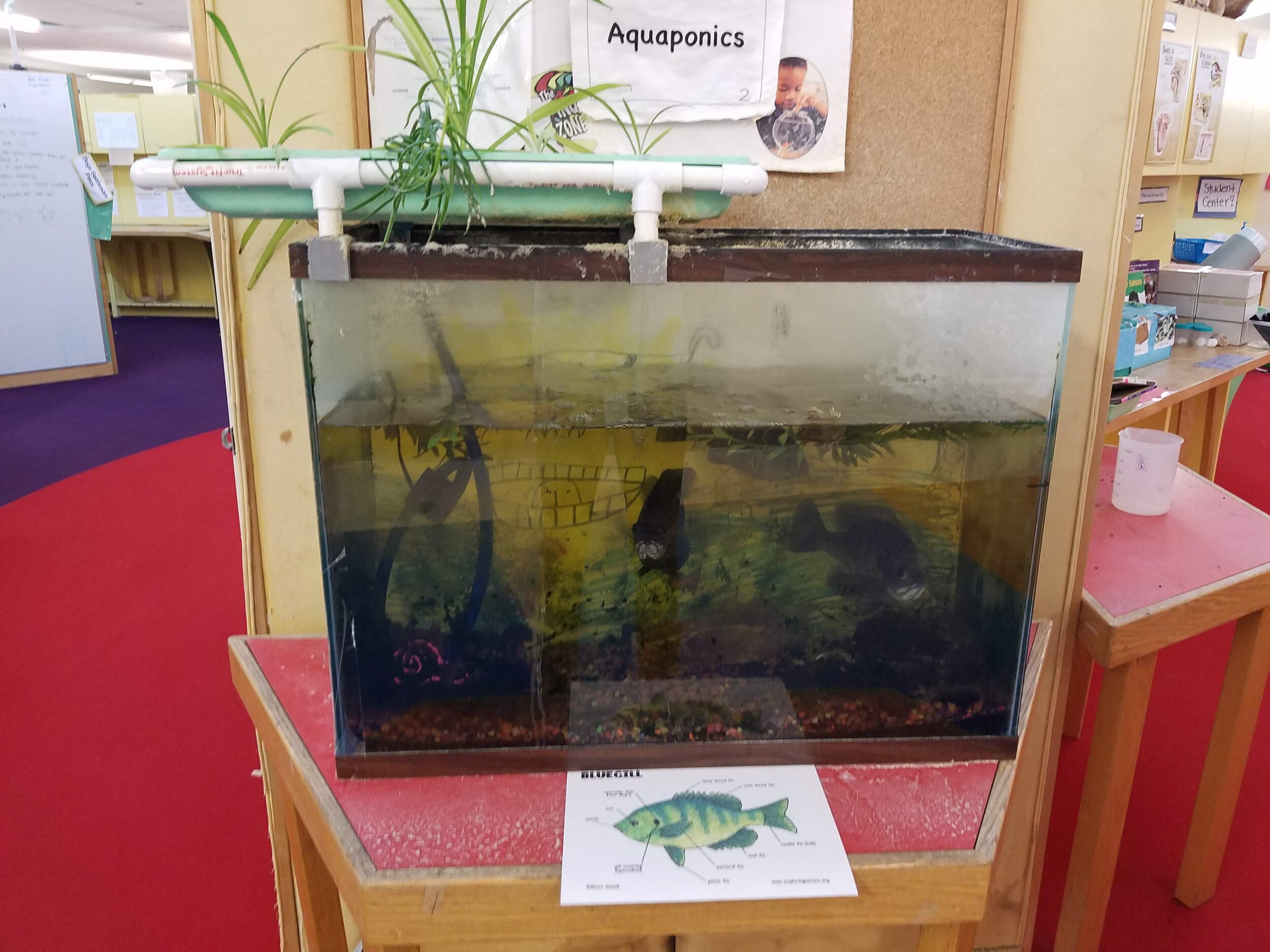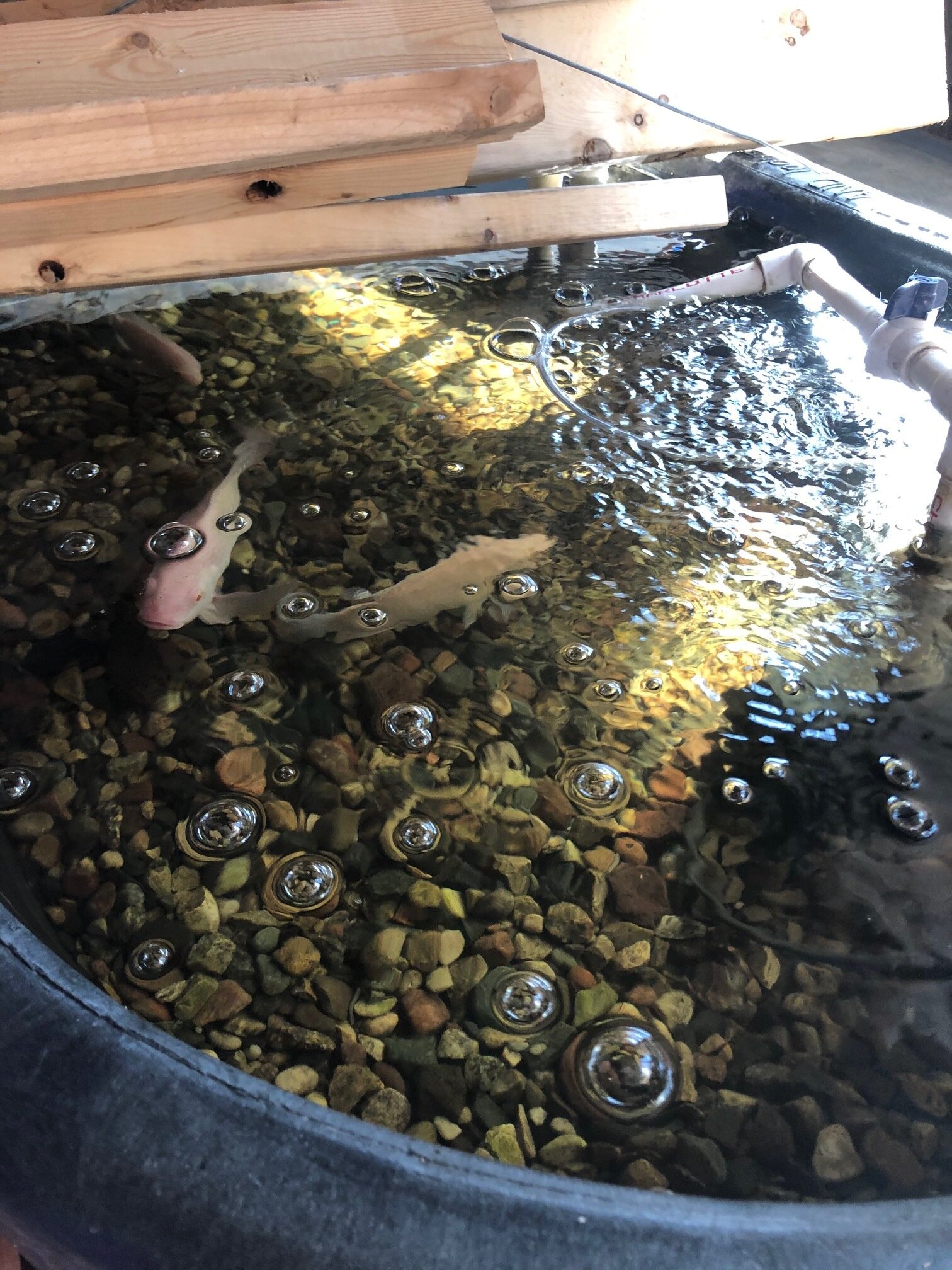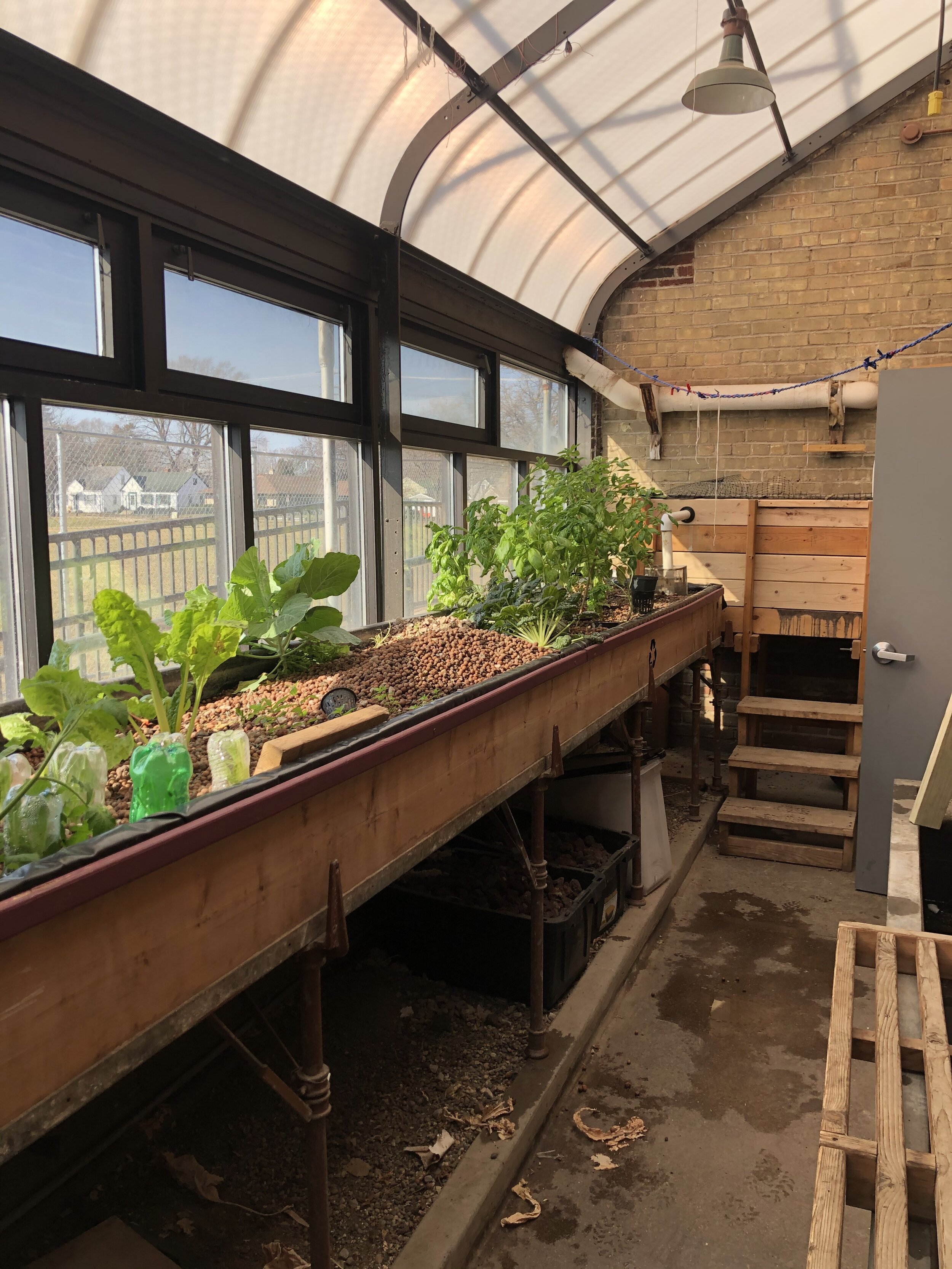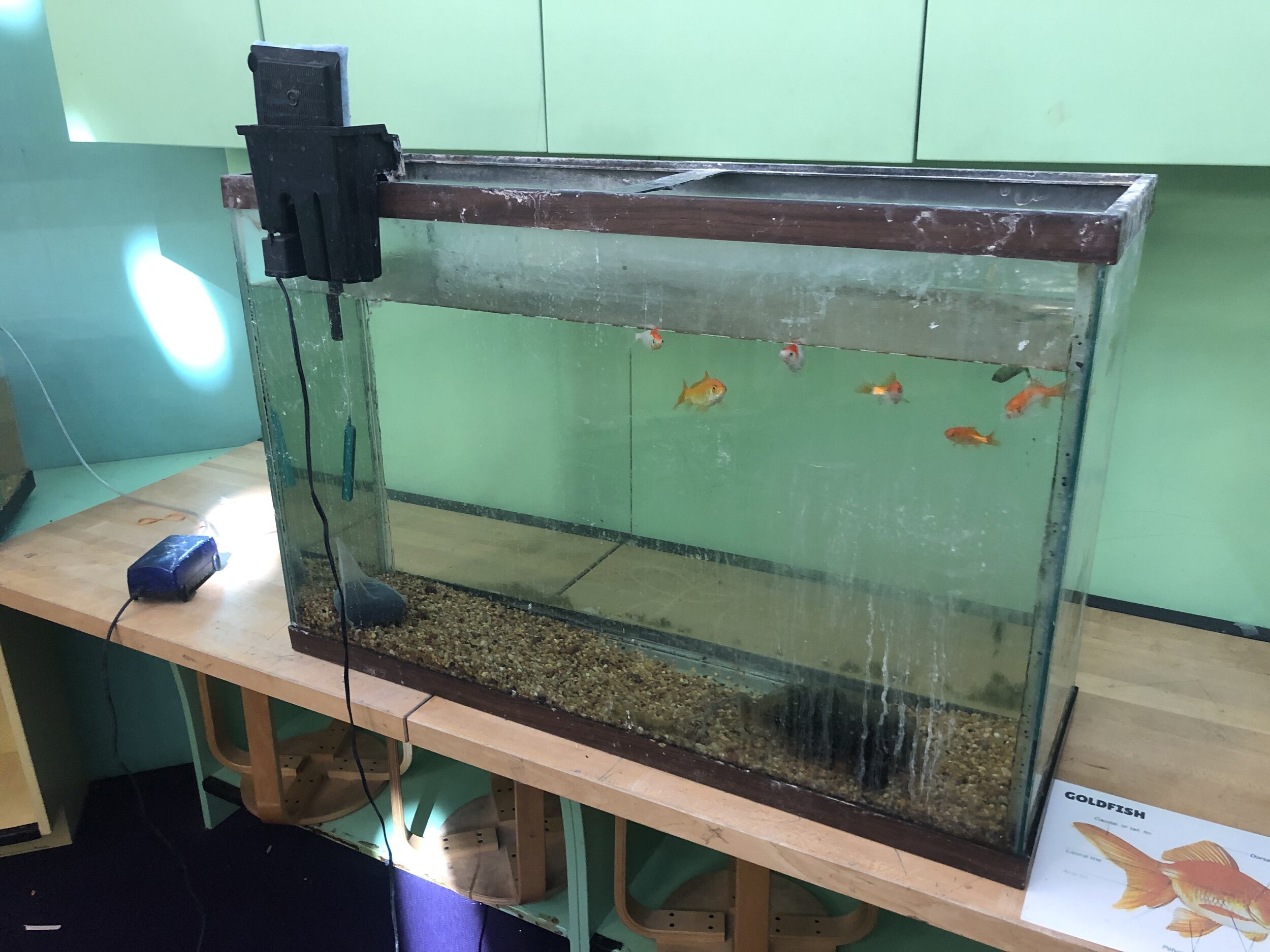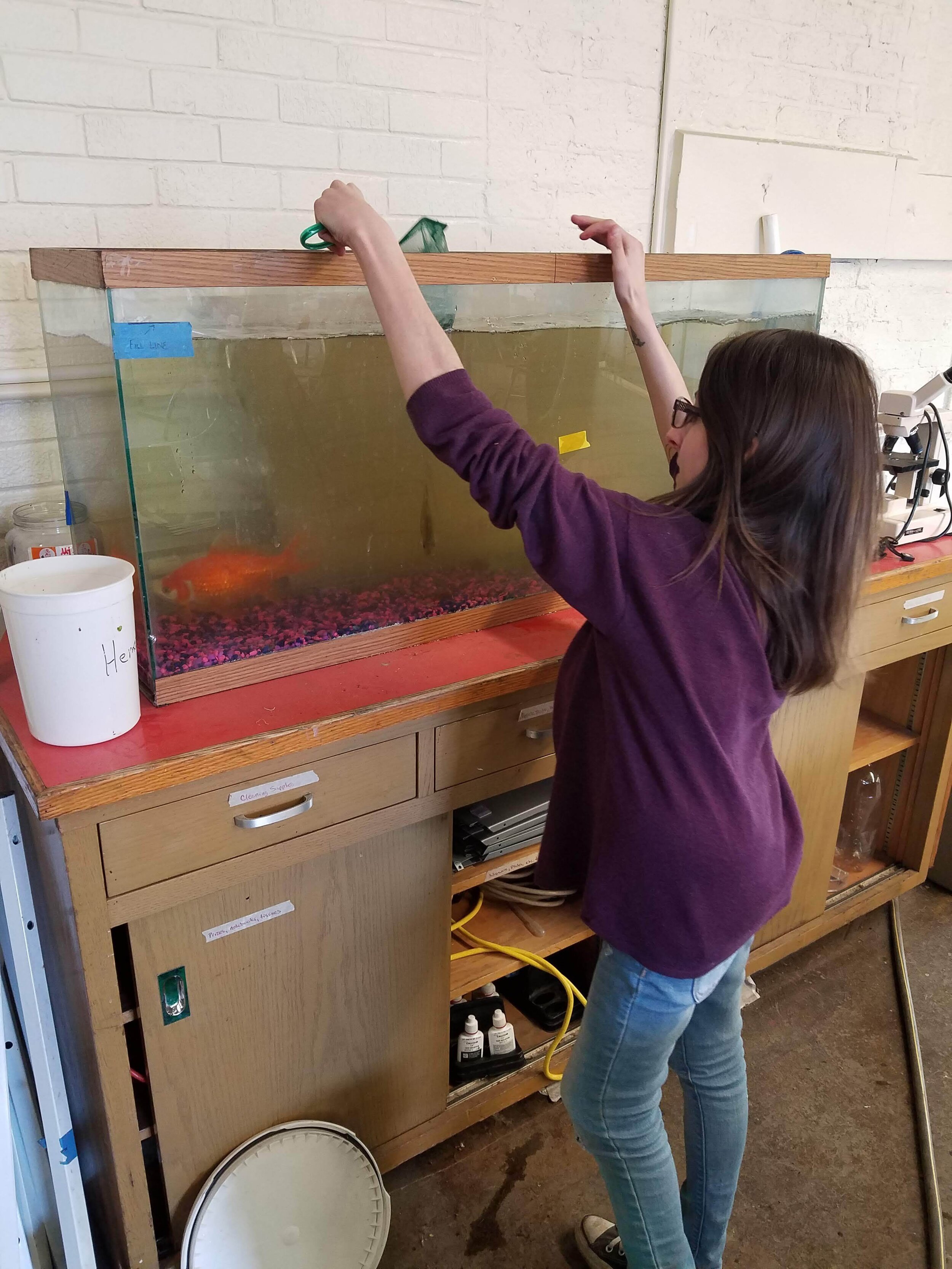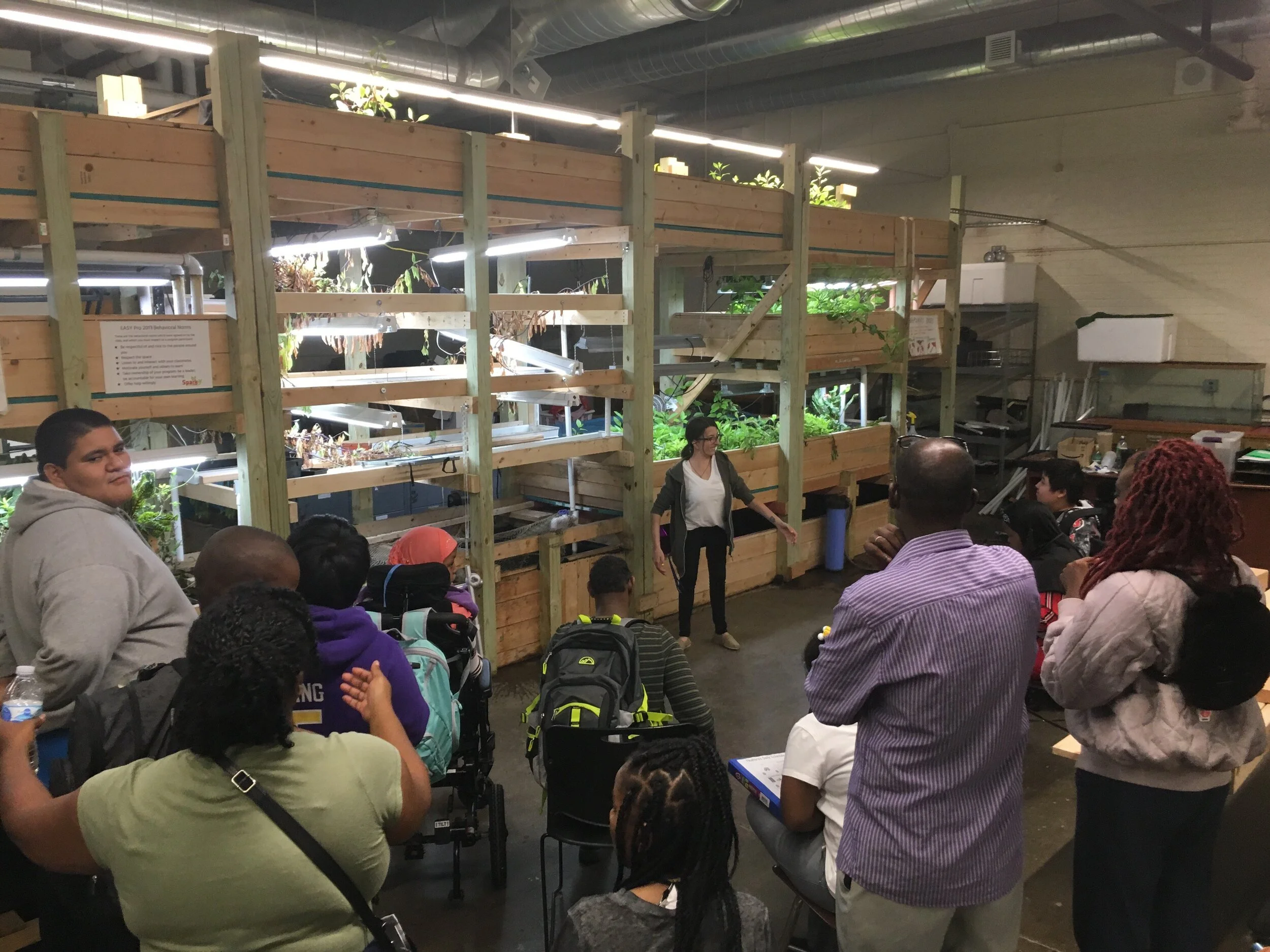The following blog post was written by Ryland Sorensen,
Spark-Y Sustainable Systems Coordinator.
No fish were harmed in the creation of this blog.
This pandemic has brought many unprecedented outcomes and has left some people jobless, feeling vulnerable, and feeling scared. It’s important to remember our resiliency and to not give up when times get hard. We can come together and help each other, especially those who can’t help themselves. If this pandemic has taught me anything it’s that caring for other people and creatures really helps with the bad feelings that come with scary times like this.
At Spark-Y we focus on hands-on education with an emphasis on sustainability, and we use aquaponics as a learning tool. Aquaponics facilitates a symbiotic relationship between fish and plants. In simple terms, fish waste in the water feeds the plants and clean water is returned to the fish. It’s a great way to grow fresh produce all year long.
When you heard that schools were closing you probably didn’t consider all the classroom pets that might be affected. Who will feed all the classroom turtles, guinea pigs, and fish? Their human friends won’t be around to feed them or keep them company. Luckily for them they have a place to go, and some lucky people will have a new friend to care for and to take their minds off things during this time of uncertainty. When I found out that the fish might be locked in schools without anyone to take care of them I knew I had to move quickly.
Working for an organization that uses fish as a learning tool is great, you feed the fish, you talk to the fish, and they become your little buddies. I think about them a lot. I wonder about things like, do they like their food? Are they being bullied by the bigger fish? I never thought one day I would be scrambling around the Twin Cities and beyond to try and rescue fish from being stuck in schools due to a virus.
Mini aquaponics systems at Crossroads Elementary.
On Monday morning rules for school closings were changing by the hour. There was talk of schools closing and it was unknown whether we would have access to take care of the fish. Luckily, Edison High School allowed Spark-Y to use the garage to relocate fish from other schools. Other schools were understandably very strict and we were told we would have to move our fish by the end of the day Tuesday or risk fish death. Schools are expected to remain closed for 3 weeks and possibly longer. We had to act fast to collect about 100 fish from seven different schools in less than two days.
Edison High School aqauponics system
I reached out to everyone who needed help relocating. Our goal was to save the fish! We not only needed to make sure they ended up in safe temporary homes, but also save as many plants as we could and to make sure that our systems were put on pause and ready to be put back to work when the coast was clear. That evening we collected all the buckets and supplies needed to relocate all the fish. Everyone was ready for the big move.
Listening to NPR on the way to the schools Tuesday morning set a tone of doom and gloom despite the sunny weather. Our first stop was Roosevelt High School where we needed to move the 15 koi to Edison. This is just one story out of many fish that had their lives totally rearranged that day.
Every school I arrived at had a similar atmosphere. Students and parents were lining up to take home lunches and school supplies. With buckets in hand, I walked past happy students and concerned parents. Staff cautiously waved me along and the custodians waved goodbye to the fish.
I used a net to carefully put the fish in their travel buckets and hauled them to my truck.
The fish were buckled up and rushed to join the rest of their relocated fish friends. On the way there one feisty bluegill jumped out of the bucket and onto the car seat. I pulled over on the side of the highway and quickly grabbed the flopping fish and put them back in the bucket. *phew*
Leaving the systems behind was a bit dreary. Pumps, filters and aerators were unplugged and the buzz of the filters ceased. The drips and dribbles of water that liven the otherwise quiet corners of the schools slowly faded. When I got back to Edison the garage had been transformed into an aquarium, bustling with the sounds of splashing water and the humm of the pumps. It was a happy moment on a gloomy day. I was very proud to see that all my co-workers were working really hard to save all the fish and to make sure they had everything they needed to get through the transition. I can’t wait to return the fish back to their homes and to see all the lovely people we work with again.
Don’t forget to be nice to each other.
